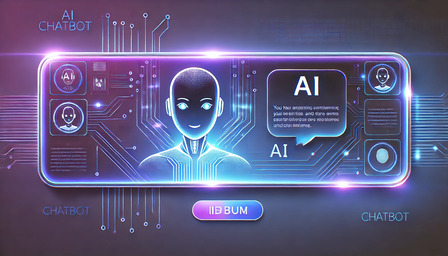Artificial intelligence has rapidly transformed how people interact with technology. AI-powered virtual assistants are no longer limited to basic voice commands. They are now capable of managing schedules, automating workflows, providing customer support, and even engaging in meaningful conversations. With such advancements, the question arises: Are we on the brink of full automation?
The Evolution of AI Virtual Assistants
Initially, virtual assistants functioned as simple programs that executed predefined commands. Over time, they have evolved into highly sophisticated AI models that utilize natural language processing (NLP) and machine learning. This progression has allowed them to comprehend context, predict user intent, and generate human-like responses.
From Basic Commands to Complex Interactions
Early virtual assistants, such as Clippy from Microsoft and basic chatbots, could only perform limited functions. However, modern AI-driven assistants like Siri, Alexa, and Google Assistant have set new standards. These platforms can now interpret natural speech, provide personalized recommendations, and integrate with smart home devices.
The Role of Machine Learning and NLP
Machine learning plays a crucial role in making AI assistants more responsive and efficient. NLP advancements have significantly improved their ability to process and understand different languages and dialects. This has made virtual assistants more accessible across various regions and industries.
Industries Transformed by AI Virtual Assistants
Customer Support and Service
AI-powered chatbots and virtual assistants have become essential in customer service. Businesses use them to handle inquiries, resolve issues, and even process transactions. This automation reduces human workload and ensures round-the-clock support.
Healthcare Assistance
Medical AI assistants now assist doctors with diagnostics, schedule patient appointments, and provide health recommendations. Although they cannot replace human professionals, their role in improving healthcare efficiency is undeniable.
Financial Management
Many banking institutions utilize AI assistants to help users manage their finances. From tracking expenses to offering investment advice, these assistants are making financial management more convenient.
Virtual Companionship
Beyond professional tasks, AI-powered assistants are also making an impact in social interactions. For instance, Rubii AI has been developed to provide companionship through AI-generated conversations. This innovation caters to individuals seeking emotional support or engaging discussions, showing how AI can also play a role in human relationships.
Are We Close to Full Automation?
The Remaining Challenges
Despite the advancements, full automation is still a work in progress. AI assistants struggle with complex decision-making and ethical dilemmas. Human intervention is often required for nuanced interactions, ensuring the technology remains aligned with ethical standards.
Ethical and Privacy Concerns
AI-powered assistants collect and process vast amounts of data. This raises concerns about user privacy and data security. Companies must implement strict regulations to protect users from potential risks.
The Need for Human Oversight
AI can automate many tasks, but human oversight is still necessary. While AI excels at processing information and performing repetitive tasks, human intuition and creativity remain irreplaceable. The future likely holds a hybrid model where AI and humans collaborate efficiently.
The Future of AI Virtual Assistants
Advancements in Personalization
AI assistants will continue to evolve by becoming more personalized. Future advancements may allow them to analyze user preferences more effectively, improving their ability to provide tailored recommendations.
Integration with More Devices
The integration of AI assistants into everyday devices will expand further. Smart homes, wearables, and even autonomous vehicles will likely feature more seamless AI interactions.
AI in Journalism and Content Creation
AI is increasingly used in generating content, assisting writers, and curating news articles. Gramhirpro is a platform that provides the latest AI and tech news, keeping users informed about emerging developments in this field.
Conclusion
AI-powered virtual assistants have undoubtedly changed how people interact with technology. While they have automated many aspects of daily life, full automation remains a complex challenge. Ethical concerns, privacy issues, and the need for human intuition ensure that AI will continue to complement, rather than replace, human efforts. The future of AI virtual assistants is promising, but it still requires careful consideration to maintain a balance between automation and human oversight.


